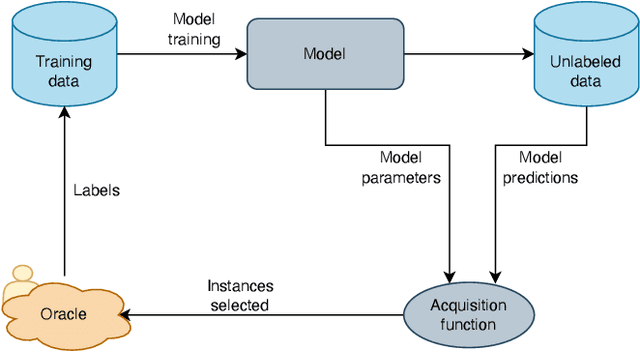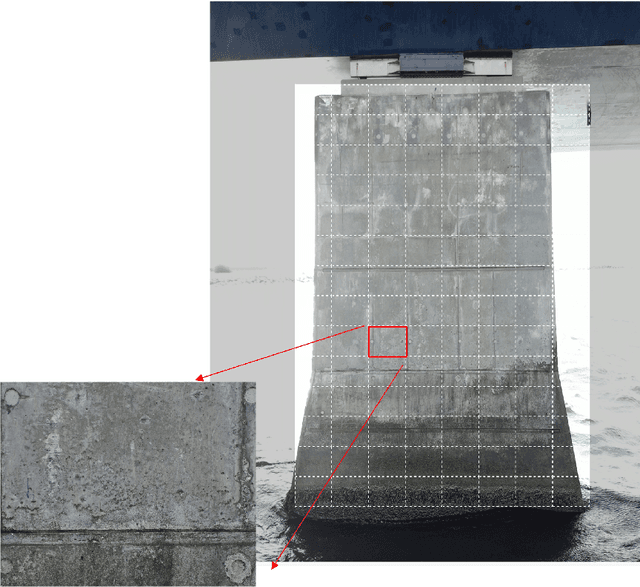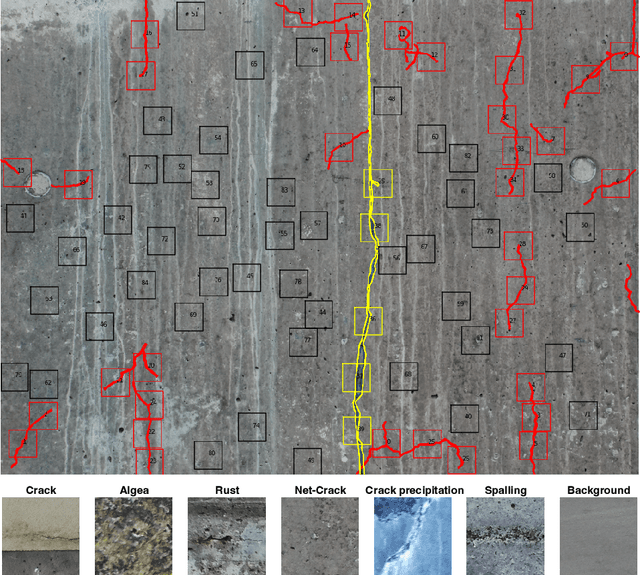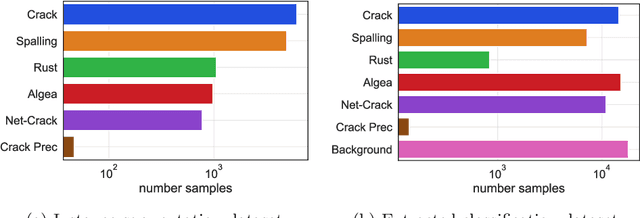Active Learning for Imbalanced Civil Infrastructure Data
Paper and Code
Oct 19, 2022



Aging civil infrastructures are closely monitored by engineers for damage and critical defects. As the manual inspection of such large structures is costly and time-consuming, we are working towards fully automating the visual inspections to support the prioritization of maintenance activities. To that end we combine recent advances in drone technology and deep learning. Unfortunately, annotation costs are incredibly high as our proprietary civil engineering dataset must be annotated by highly trained engineers. Active learning is, therefore, a valuable tool to optimize the trade-off between model performance and annotation costs. Our use-case differs from the classical active learning setting as our dataset suffers from heavy class imbalance and consists of a much larger already labeled data pool than other active learning research. We present a novel method capable of operating in this challenging setting by replacing the traditional active learning acquisition function with an auxiliary binary discriminator. We experimentally show that our novel method outperforms the best-performing traditional active learning method (BALD) by 5% and 38% accuracy on CIFAR-10 and our proprietary dataset respectively.
 Add to Chrome
Add to Chrome Add to Firefox
Add to Firefox Add to Edge
Add to Edge